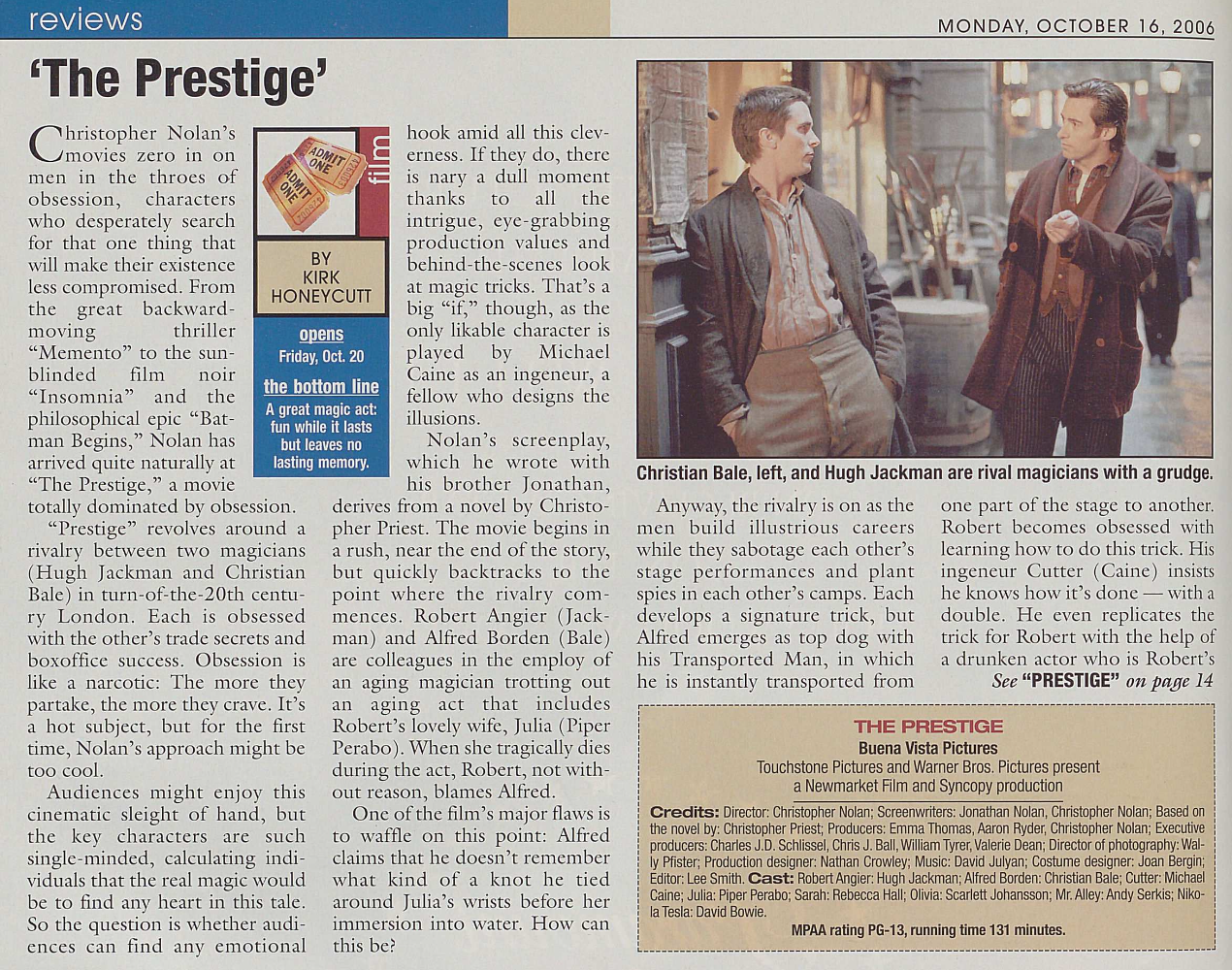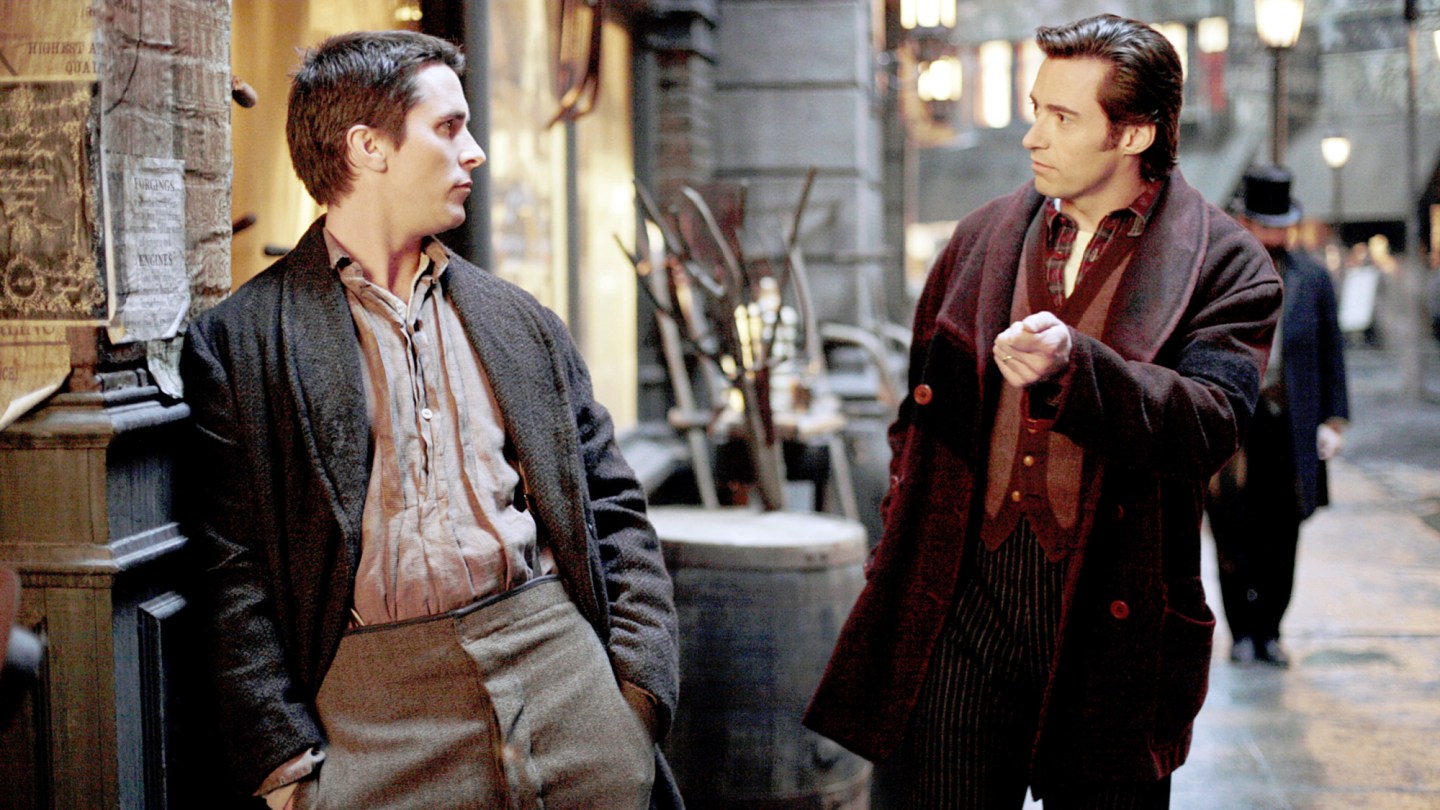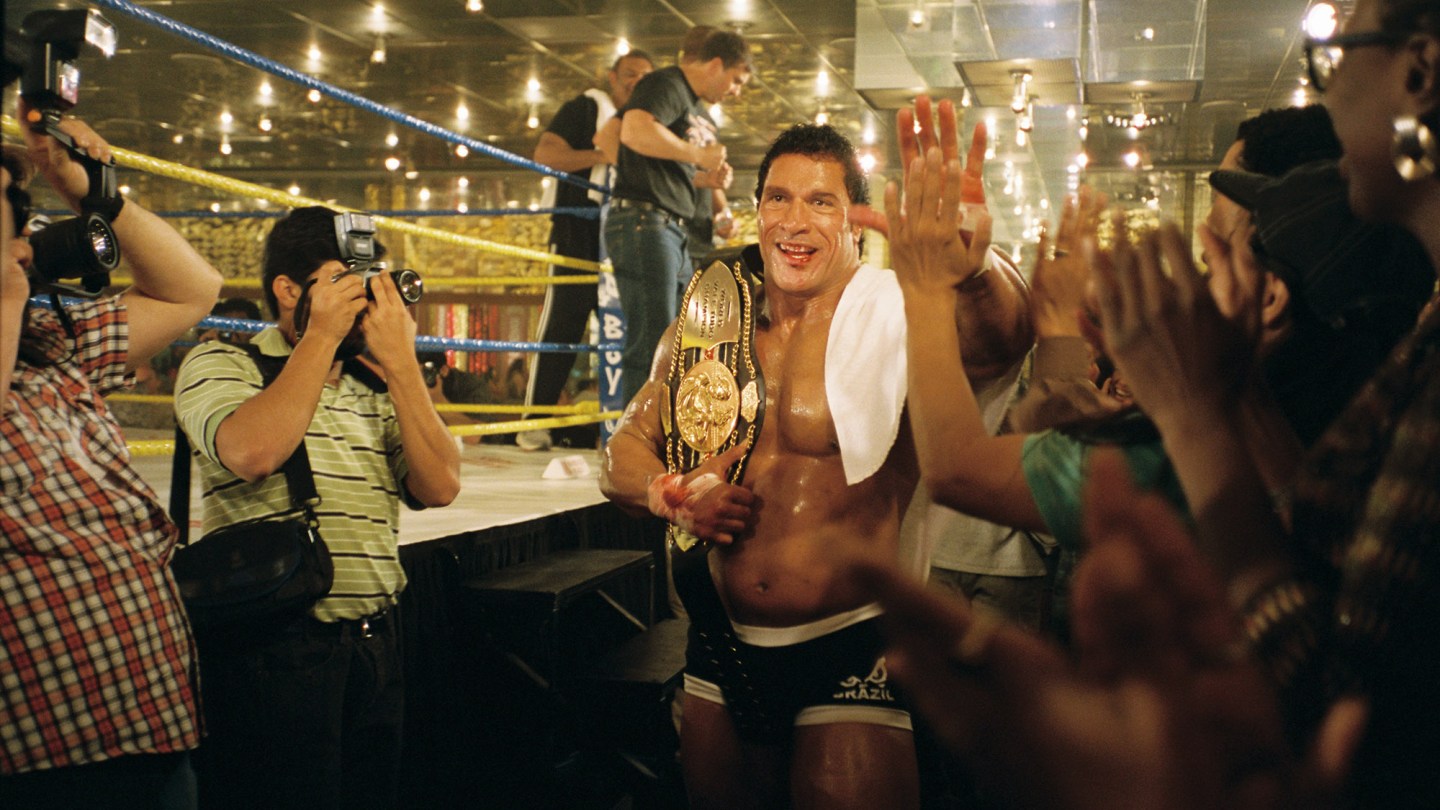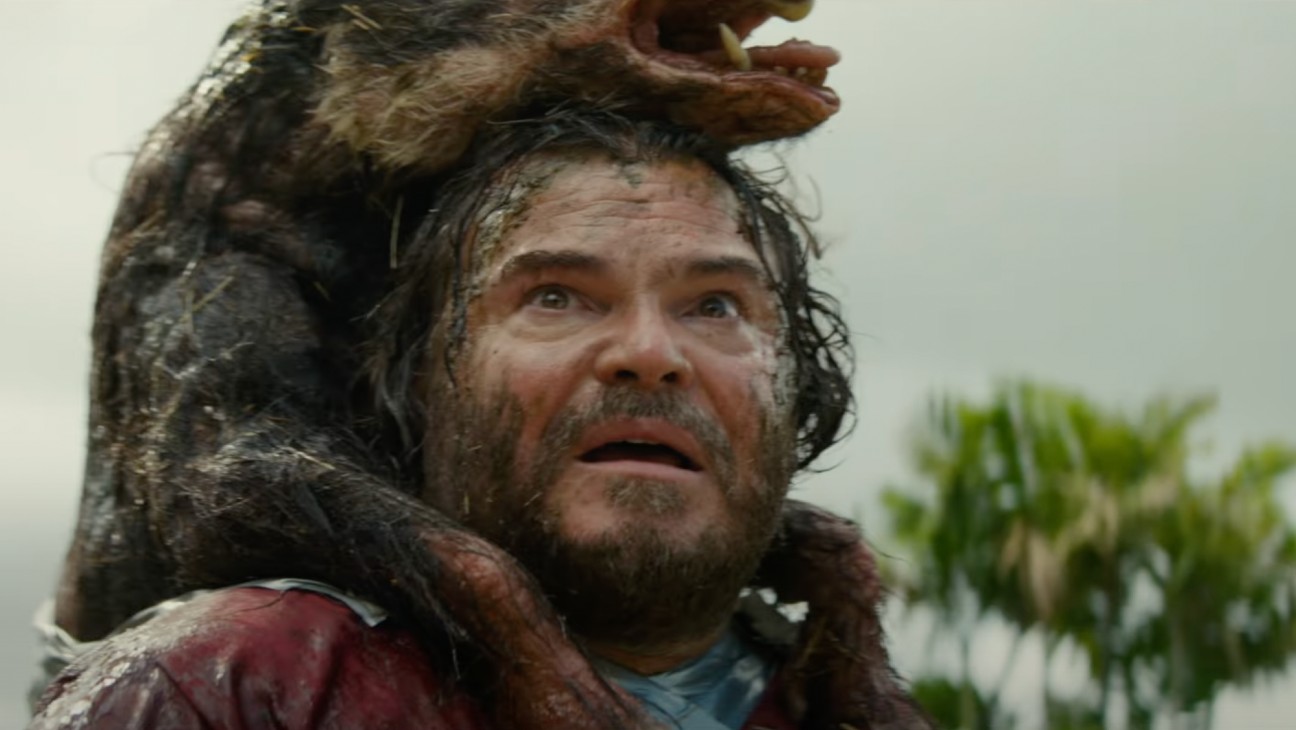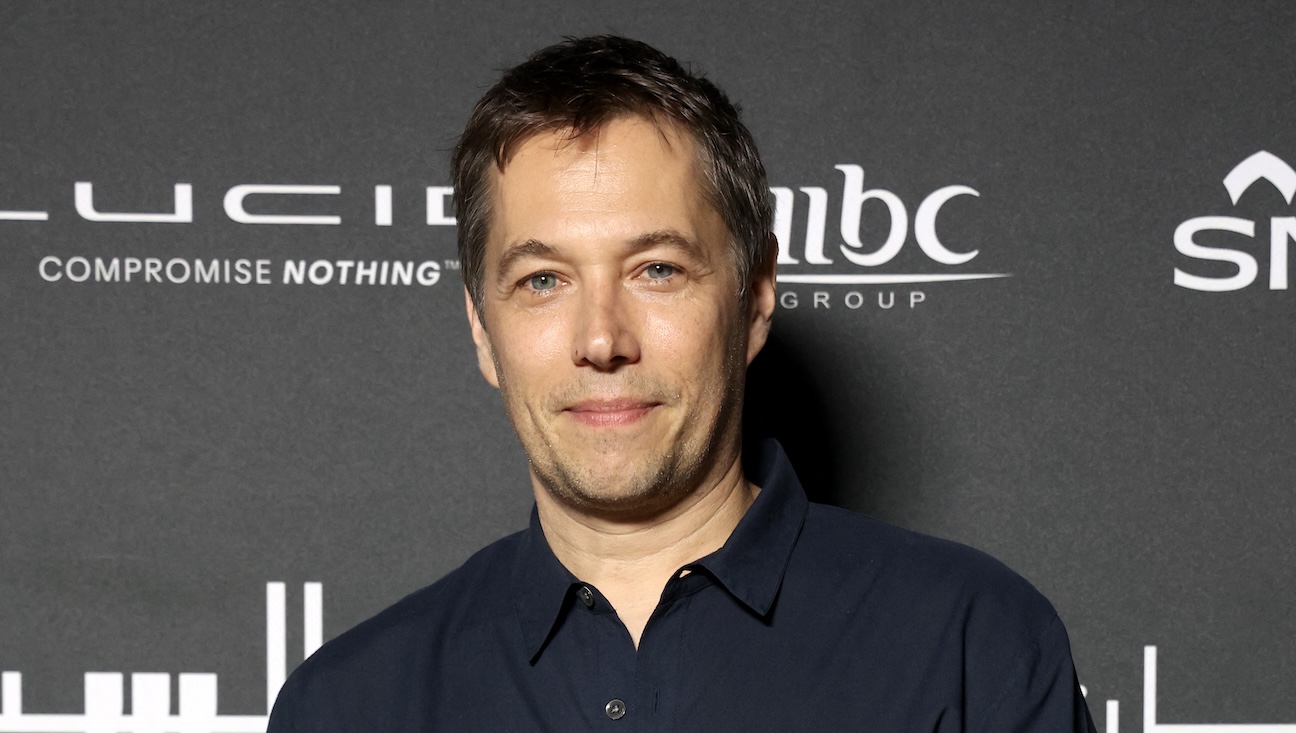On Oct. 20, 2006, Christopher Nolan unveiled the Hugh Jackman and Christian Bale magician feature The Prestige in theaters, where it would go on to gross $110 million globally. The Touchstone Pictures and Warner Bros. title went on to nab two nominations at the 79th Academy Awards, for art direction and cinematography. The Hollywood Reporter’s original review of the drama is below:
Christopher Nolan’s movies zero in on men in the throes of obsession, characters who desperately search for that one thing that will make their existence less compromised. From the great backward moving thriller Memento to the sunblinded film noir Insomnia and the philosophical epic Batman Begins, Nolan has arrived quite naturally at The Prestige, a movie totally dominated by obsession.
Prestige revolves around a rivalry between two magicians (Hugh Jackman and Christian Bale) in turn-of-the-20th century London. Each is obsessed with the other’s trade secrets and boxoffice success. Obsession is like a narcotic: The more they partake, the more they crave. It’s a hot subject, but for the first time, Nolan’s approach might be too cool.
Audiences might enjoy this cinematic sleight of hand, but the key characters are such single-minded, calculating individuals that the real magic would be to find any heart in this tale. So the question is whether audiences can find any emotional hook amid all this cleverness. If they do, there is nary a dull moment thanks to all the intrigue, eye-grabbing production values and behind-the-scenes look at magic tricks. That’s a big “if,” though, as the only likable character is played by Michael Caine as an ingeneur, a fellow who designs the illusions.
Nolan’s screenplay, which he wrote with his brother Jonathan, derives from a novel by Christopher Priest. The movie begins in a rush, near the end of the story, but quickly backtracks to the point where the rivalry commences. Robert Angier (Jackman) and Alfred Borden (Bale) are colleagues in the employ of an aging magician trotting out an aging act that includes Robert’s lovely wife, Julia (Piper Perabo). When she tragically dies during the act, Robert, not with out reason, blames Alfred.
One of the film’s major flaws is to waffle on this point: Alfred claims that he doesn’t remember what kind of a knot he tied around Julia’s wrists before her immersion into water. How can this be? Anyway, the rivalry is on as the men build illustrious careers while they sabotage each other’s stage performances and plant spies in each other’s camps. Each develops a signature trick, but Alfred emerges as top dog with his Transported Man, in which he is instantly transported from one part of the stage to another. Robert becomes obsessed with learning how to do this trick. His ingeneur Cutter (Caine) insists he knows how it’s done — with a double. He even replicates the trick for Robert with the help of a drunken actor who is Robert’s look-alike. This does nothing to appease Robert’s obsession.
Robert surreptitiously attains Alfred’s workbook/diary, where many secrets may exist. Meanwhile, he takes off for Colorado Springs, where the eccentric Serbian scientist and inventor Nikola Tesla (David Bowie, if you please) the story’s one actual historical figure powers the entire city with electricity from his lab. Believing that Tesla built Alfred’s Transporter machine, Robert hopes the wizard can build a similar contraption for him.
Just as a conjurer saws a lady in half, the movie keeps dividing its characters and relationships. Once buddies, Robert and Alfred are now rivals. Each has a wife. Robert’s dies, but Alfred’s, Sarah (Rebecca Hall), flourishes. Yet Sarah sees in her husband a divided soul: One days he loves her; another day he does not.
Olivia (Scarlett Johansson) becomes Robert’s assistant and eventually his lover. Only Robert sends her to Alfred, ostensibly to steal his secrets, but she sells him out and becomes Alfred’s lover. There are more instances of such divisions, but to reveal more would reveal the movie’s twin secrets — one of which audiences will probably guess and the other they probably won’t.
So tangled are the tricks and plot lines that the story’s characters are little more than sketches. Remove their obsessions, and the two magicians have little personality. The women suffer from their men’s distractions but have, seemingly, little life of their own. Indeed you don’t need a star such as Johansson to play Olivia, so slim is her role.
Bowie is quite wonderful as Tesla — mysterious, exotic yet somehow the film’s most reasonable man —while Andy Serkis as his assistant brings sly comedy to an otherwise morbidly serious affair.
Production values are aces with dynamic, gritty sets; light ing that makes the movie take place in a perpetual twilight; and a lively, nerve-jangling score. — Kirk Honeycutt, originally published on Oct. 16, 2006.
